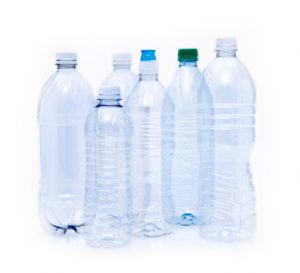






OTHER TAXES
 The Beverage Industry & Beverage Container Deposits
The Beverage Industry & Beverage Container Deposits
Comprehensive recycling programs are one of the best mechanisms for helping the environment. However, instead of expanding these programs, some critics instead support mandatory deposit programs or “bottle bills.” When it comes to bottle bills, however, three decades of data and practical experience have undeniably demonstrated that imposing mandatory deposits on beverage containers is a poor way to increase recycling and address solid waste issues.
Mandatory deposit programs, more commonly known as “bottle bills,” share several common elements:
- Impose a mandatory, pre-paid fee on certain beverage containers
- Force consumers to drive containers to designated locations to reclaim their fee
- Require retailers or redemption centers to take back returned containers
- Require significant new infrastructure (equipment, staff and facilities) to manage beverage containers separately from other products and packaging
Eleven states have enacted forced deposit programs – all but one of which was implemented prior to 1987. In fact, in 2002, the nation’s only municipal deposit ordinance was repealed in Columbia, Missouri. These deposit programs were all established to help reduce beverage container litter. In recent years, however, deposits also have been advertised as a way to increase beverage container recycling.
The Drawbacks of Mandatory Deposits:
- Deposit systems simply don’t work as advertised. They are a misguided policy choice because they:
- Cost much more than comprehensive recycling or litter control programs, which accomplish the same goals
- Penalize and hinder more efficient recycling programs
- Are inconvenient, particularly compared to curbside recycling programs
- Do little to help the environment as they target such a small part of the waste stream
- Create new environmental burdens from increased fuel consumption and greenhouse gas emissions to return and collect containers
- Impose a hidden, regressive tax on consumers in the form of higher prices
Deposits and Recycling
Beverage bottles and cans have always been a valuable and significant component of recycling programs. The earliest recycling of metals and glass grew out of market-based scrap companies that purchased materials from businesses and consumers. With markets for materials and voluntary participation, recycling programs were economically viable and sustainable.
These principles hold true today, but the economic incentive to recycle has increased as many communities and businesses face much higher waste disposal costs than ever before. The interest in capturing the value of the commodities and diverting waste from disposal led to the establishment of curbside recycling programs in the 1980s, providing collection of recyclables in the same way trash was collected
Montana’s recognize the need to recycle and have pulled together in their communities to create recycling programs that work for them. With the barriers of long distances and lack of close markets Montanans have pulled together to increase state recycling rates consistently. The Montana Beverage Association is pleased to be a partner with S.A.V.E. to sponsor their monthly plastics drive.
Taxing Beverages
Some states and communities have implemented taxes on nonalcoholic beverages as a way to raise government revenue and fund various programs. But taxing beverages, or any food item, is a poor way for governments to increase revenue, especially in tough economic times.
Voters in Maine soundly rejected a recent attempt to tax beverages to fund state programs. By a 64 to 36 margin in the November 2008 election, Mainers declared that they were “fed up with taxes” and rolled back a tax enacted by the Legislature months earlier. Maine residents understood that beverage taxes are:
Unpopular – The public views beverage taxes as a tax on food. Even if the taxes are imposed directly on businesses, surveys show that 95 percent of consumers believe they will ultimately bear the burden of beverage taxes, passed on to them by producers and retailers.
Regressive – Beverage taxes hurt low-income consumers significantly more than others because it raises the price of groceries, which is most harmful to those on fixed incomes. As a result, those least able to afford beverage taxes bear the greatest burden.
Unfair – Beverage manufacturers and bottlers already pay their fair share of business and other taxes, generating more than $55 billion in revenue annually for federal, state and local governments.
Anti-business – Beverage taxes raise the cost of doing business, not just for beverage companies, but for their suppliers and retail customers as well. Higher costs reduce reinvestment and job growth – a critical consideration given that the beverage industry directly or indirectly supports nearly 3 million American jobs and $112 billion in wages and salaries.
Today only Arkansas, Washington, West Virginia and the city of Chicago retain discriminatory taxes against beverages. In recent years, the trend has been to repeal or reduce these taxes. In fact, since 1990, 10 states and communities have repealed discriminatory taxes on soft drinks.

Montana beverage companies make and sell some of the most popular refreshing non-alcoholic beverages in the world. With a presence felt in every corner of every community in the state – from our products in the aisles of neighborhood stores, to our local delivery drivers who distribute them, to our support of local community initiatives – you might say that the beverage industry quenches Montana’s thirst. At the same time, the beverage industry is an important part of Montana’s and the nation’s economy by providing well paying jobs, paying significant tax dollars to the government, and by making sizable charitable contributions in communities across the state.
Montana’s beverage industry provides over 1,384 jobs in the state. That number becomes even more impactful when you consider how many people across the country are directly employed by the beverage industry ~252,947. Of course, that means billions of dollars in taxes for local, state, and federal governments.
Additionally, Montana beverage companies donate over $724,000 to charities and other nonprofits in their local communities. Without a doubt, Montana beverage companies are delivering for the citizens of Montana!

